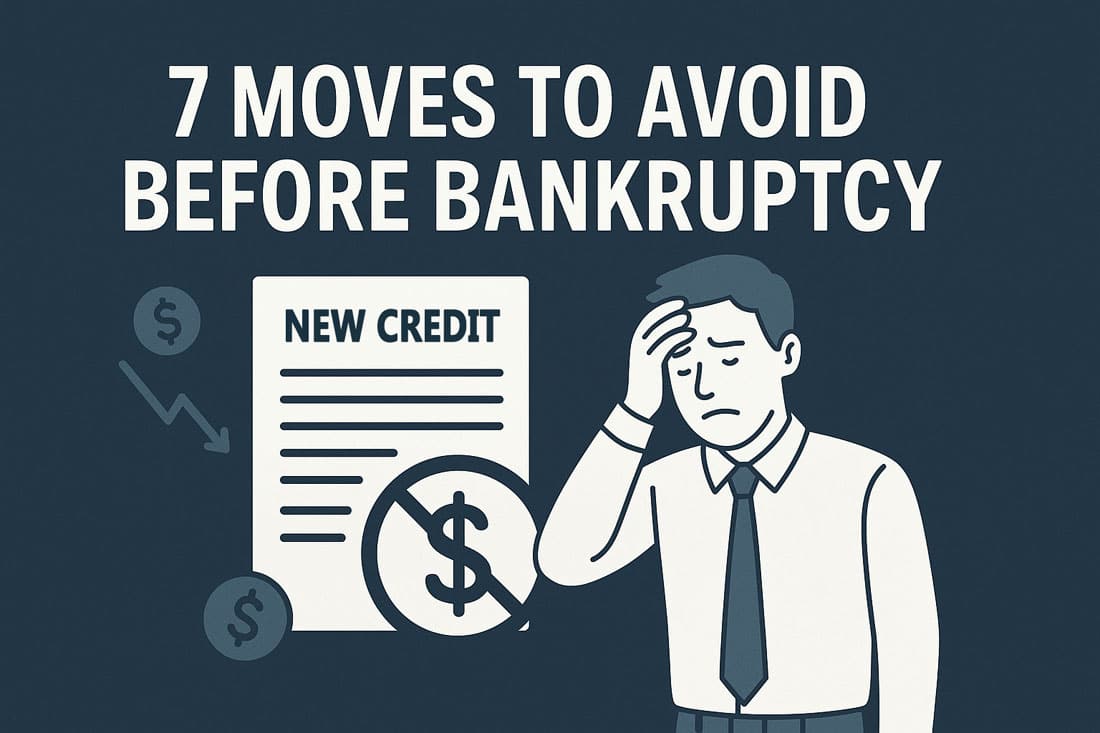
Most people who file for bankruptcy in Los Angeles know their debt is spiraling out of control for some time before they reach out to a bankruptcy lawyer. Many realize that they will likely have to file bankruptcy at some point, or even have a rough timeline in mind. Unfortunately, the actions some would-be bankruptcy filers take during that time can complicate their bankruptcy cases, or even mean they need to wait longer than planned to file.
Here are some common steps people struggling with debt take that can backfire if you want to file bankruptcy.
-
Using a Cosigner. When you’re struggling with debt, you likely have a lower-than-optimal credit score as well. In a crunch, a cosigner may be your only option for securing the credit you need. But if you fall behind on payments, your cosigner will take a credit hit along with you, and will ultimately have to make those payments. If you later decide to file for Chapter 7 bankruptcy, you may be released from the obligation to pay the debt, but your cosigner won’t.
-
Taking out new credit. Many people considering bankruptcy say things like, “But first I need to use my credit card to get my car fixed.” However, taking out new debt in anticipation of bankruptcy is considered bankruptcy fraud, and could mean the debt isn’t dischargeable–or even that your case gets dismissed.
-
Paying off one creditor. In bankruptcy, all creditors of the same type are treated equally. In the lead-up to bankruptcy, you can’t give one creditor preferential treatment. For example, if you pay off a loan from a small local company you’ve done business with for a long time before you file bankruptcy but don’t make proportionate payments to your credit card companies, the bankruptcy trustee could seek to take back that money and distribute it fairly among your other unsecured creditors. In general, the trustee will look back at transactions over the past 30 days. But, if you paid an insider like a family member or business partner, the lookback period is much longer.
-
Borrowing money from friends and family. You don’t get to pick and choose which creditors to list in your bankruptcy filing. You must include them all. That includes personal loans from people close to you. Nothing prevents you from voluntarily paying that money back after bankruptcy, but you will be required to list those debts in bankruptcy, and in most situations your legal obligation to pay them will be discharged.
-
Taking funds out of a retirement account to pay bills. Most types of retirement accounts are exempt in bankruptcy, meaning the trustee can’t take those funds to pay your creditors. But, once those funds are removed from a retirement account and in your personal bank account, the exemption limit is typically much lower. Simply moving those funds could make them vulnerable to seizure by the bankruptcy trustee.
-
Giving away property (or selling it cheap). Transferring property to protect it from your creditors in bankruptcy is considered bankruptcy fraud. Of course, the court can’t necessarily tell what your actual intent was when you transferred the property. That means anything you gifted leading up to bankruptcy may be considered a fraudulent transfer. That could include actions like giving your adult daughter one of your vehicles or adding your spouse to the deed on your house–transactions that are normal in many families, but become suspect in bankruptcy. It also includes transfers below market value, such as selling your second car to your brother for $2,500, though it’s valued at $8,000.
-
Acting without educating yourself. Many of the “don’ts” listed above happen in good faith, simply because people considering bankruptcy don’t know all the rules or ramifications. That’s no surprise: bankruptcy is more complicated than many people imagine. The best way to avoid these pitfalls and others like them is to seek information from an experienced bankruptcy attorney as soon as you begin to consider Chapter 7 or Chapter 13 as a possible solution.
Talk to a Los Angeles Bankruptcy Attorney Right Away
At Borowitz & Clark, we’ve helped tens of thousands of people in and around LA resolve debts. We’ve seen many people who made costly mistakes before seeking advice. Our experienced bankruptcy lawyers offer free consultations to make sure you have the information you need to make the right decision for you–and that you know how to avoid missteps that could hurt your bankruptcy case.
To learn more or schedule your free consultation, call us today at 877-439-9717 or fill out our contact form.
